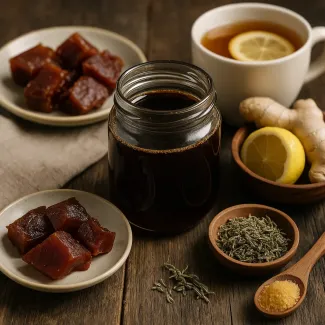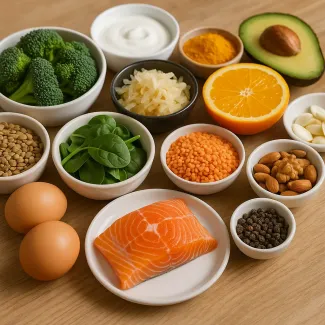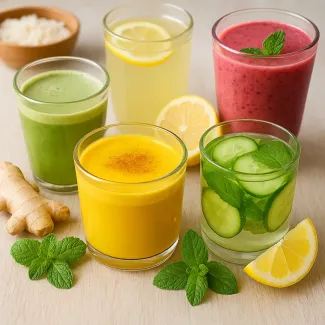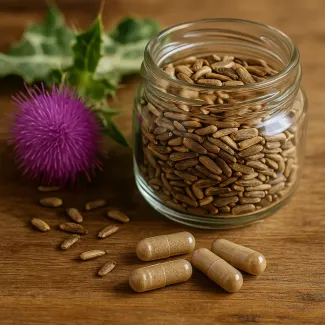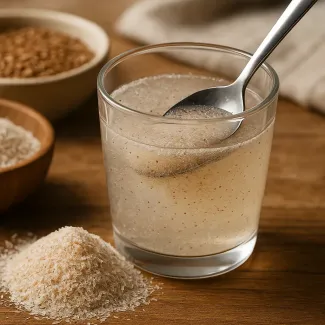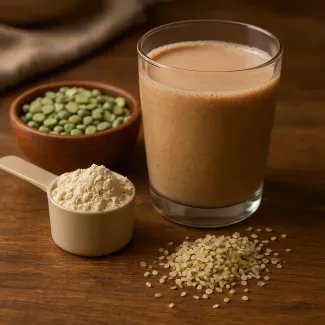
Unlocking Peak Performance with Plant-Based Protein for Vegetarian Athletes
A comprehensive guide to fueling your strength, recovery, and endurance naturally
For vegetarian athletes, meeting daily protein needs is not just a matter of quantity, but of quality, timing, and digestibility. Whether you're a runner, lifter, swimmer, or weekend warrior, building lean muscle, repairing tissue, and maintaining endurance depends on having the right plant-based protein supplements as part of your daily routine. Unlike animal-based products, vegetarian proteins require a strategic approach to amino acid completeness, bioavailability, and digestive compatibility. In this in-depth guide, you'll discover how to choose the best protein powders and isolates tailored specifically to support your athletic goals — from boosting post-workout recovery to promoting muscle development, and enhancing energy levels during training cycles.
Why Protein Matters More for Active Vegetarians
Compared to the general population, vegetarian athletes often need a more structured approach to their macronutrient intake — especially protein. Since plant proteins tend to be less concentrated in essential amino acids like leucine, lysine, and methionine, it's important to either combine complementary sources or use fortified isolates that deliver all nine essential amino acids in effective proportions.
Without adequate protein, recovery slows, fatigue increases, and performance plateaus. Yet, many vegetarian athletes still rely heavily on whole food sources such as lentils, quinoa, and tofu — which, although nutritious, may not meet the demands of intense physical training without strategic supplementation.
How Much Protein Do Vegetarian Athletes Really Need?
General recommendations suggest that athletes require anywhere from 1.2 to 2.0 grams of protein per kilogram of body weight daily. For vegetarians, it's often better to aim toward the upper end of that spectrum — around 1.6 to 2.2 g/kg — to account for slightly lower digestibility and amino acid utilization of plant-based sources.
This means a 70 kg endurance athlete may need upwards of 140 grams of protein per day, ideally distributed across four to five meals or shakes for optimal absorption and muscle protein synthesis.
Types of Protein Supplements Suitable for Vegetarians
Pea Protein Isolate
Pea protein has quickly become one of the most popular plant-based options thanks to its high content of branched-chain amino acids (BCAAs) — particularly leucine, which is essential for muscle protein synthesis. It is also hypoallergenic, easily digestible, and suitable for people with soy or dairy sensitivities.
Brown Rice Protein
Though slightly lower in lysine, brown rice protein has a smooth texture, making it ideal for blending into smoothies. It's an excellent source of cysteine and methionine, which support muscle repair and cellular energy production.
Hemp Protein
Hemp protein stands out for its rich omega-3 and omega-6 fatty acid profile, in addition to being a complete protein. While it has a slightly gritty texture, it contributes both fiber and magnesium, which are beneficial for muscle relaxation and cardiovascular health.
Soy Protein Isolate
Despite being controversial in some circles, soy protein isolate remains one of the most studied and complete plant proteins available. It rivals whey protein in terms of its anabolic properties, especially for supporting muscle gain and bone density.
Blended Plant Proteins
Some brands combine several plant sources — such as pea, rice, chia, quinoa, and pumpkin seed proteins — to create complete amino acid profiles and improve texture, taste, and absorption rates. These blends are often fortified with digestive enzymes or probiotics to support gut health, which is especially important for athletes with sensitive digestion.
Factors to Consider When Choosing a Plant-Based Protein Supplement
Amino Acid Profile
Look for products with complete protein profiles or those that explicitly list their leucine content per serving. Leucine is the primary trigger for muscle protein synthesis, so aim for at least 2.5 grams per serving.
Digestibility and Absorption
Proteins with a PDCAAS (Protein Digestibility-Corrected Amino Acid Score) close to 1.0 — like soy and pea — offer the most efficient nutrient delivery. Supplements that include digestive aids like papain, bromelain, or probiotics may reduce bloating or gas.
Additives and Sweeteners
Check the ingredient list for artificial sweeteners, gums, or fillers. Products flavored with monk fruit, stevia, or natural vanilla/cacao are generally more gut-friendly and better suited for daily use.
Texture and Taste
While some plant-based powders can be gritty or earthy, many newer formulations are designed to be creamy, neutral, and palatable, even with water. Choose unflavored versions if you prefer to blend them with fruit or nut milk.
Third-Party Testing and Certifications
Opt for supplements that carry NSF Certified for Sport, Informed-Sport, or USP verification, especially if you compete professionally or want reassurance on product purity.
Ideal Timing for Protein Supplementation
Post-Workout Window
The 30- to 60-minute window after training is the most crucial time to consume protein. Aim for 25–30 grams of fast-absorbing protein with at least 2.5 grams of leucine.
Morning Routine
Including a protein shake with your breakfast helps prevent overnight muscle breakdown and maintains a positive nitrogen balance throughout the day.
Pre-Sleep Support
Consuming a slow-digesting protein, such as soy or blended plant protein, before bed can support overnight muscle recovery and reduce morning soreness.
Supporting Muscle Growth Without Meat
Leucine Threshold Strategy
Many athletes fail to hit the leucine threshold required for maximum anabolic response. To overcome this, ensure each protein serving — from food or supplements — provides 2.5 to 3 grams of leucine.
Complementary Proteins from Whole Foods
Pairing rice with legumes, hummus with whole grain bread, or tofu with quinoa enhances amino acid synergy. These food pairings complement supplement intake and round out your nutritional plan.
Avoiding Common Deficiencies
Vegetarian athletes are more prone to iron, vitamin B12, and zinc deficiencies — all of which influence energy metabolism, oxygen transport, and muscle recovery. While not directly related to protein, these nutrients affect how well you can utilize protein for performance gains.
Protein and Gut Health: What Vegetarian Athletes Need to Know
Some plant-based proteins — particularly legume-derived ones — can cause bloating or discomfort, especially if consumed in large quantities. If you're sensitive, start with low-FODMAP protein powders, avoid gums like xanthan or guar, and introduce new supplements gradually.
Adding a scoop of prebiotic fiber, like inulin or baobab, to your shake can help improve microbiome diversity, which is increasingly linked to improved recovery and immune resilience.
What to Avoid in Plant-Based Protein Supplements
- Artificial sweeteners like sucralose or acesulfame-K
- Synthetic vitamins in non-bioavailable forms
- Heavy metal contamination (choose certified tested brands)
- Protein blends without amino acid profiles
- Overuse of rice protein in isolation (due to potential arsenic content)
Real-Life Protein Planning for Vegetarian Athletes
Breakfast
- Oatmeal with chia seeds, almond butter, and soy milk
- Add a scoop of unflavored pea protein to increase overall grams
Post-Workout
- Smoothie with banana, spinach, vegan protein blend, flaxseeds, and coconut water
Lunch
- Quinoa bowl with tempeh, black beans, avocado, and pumpkin seeds
Snack
- Roasted chickpeas or a high-protein bar made with pea and brown rice protein
Dinner
- Stir fry with tofu, edamame, and buckwheat noodles
The Role of Protein in Recovery and Inflammation
Protein intake plays a pivotal role in reducing exercise-induced inflammation, supporting immune health, and speeding up muscle repair. Some plant-based proteins also offer anti-inflammatory benefits, especially those containing turmeric, ginger, or spirulina.
Look for powders that combine protein with adaptogens or superfoods, which can help modulate cortisol and aid in recovery from high-intensity workouts.
Sustainable Gains: Ethical and Environmental Considerations
Beyond performance, many vegetarian athletes choose plant-based proteins for ethical, environmental, or digestive reasons. Compared to whey or casein, plant proteins require fewer resources to produce, generate lower greenhouse gas emissions, and cause less water pollution.
Supplements made with regeneratively farmed peas, organic hemp, or sustainably harvested algae can align with your planet-friendly goals without compromising athletic performance.
Common Mistakes to Avoid When Supplementing as a Vegetarian Athlete
- Using only one protein source and missing key amino acids
- Ignoring timing — spacing your intake poorly throughout the day
- Relying solely on food when training volume is high
- Overlooking signs of low iron or B12 deficiency
- Using supplements with hidden sugars or low protein purity
What to Look for on a Protein Label
- Serving size and grams of protein per scoop
- Leucine content per serving
- Amino acid breakdown (ideally listed per 100 g or per serving)
- Presence of enzymes or probiotics
- Organic, non-GMO, allergen-free certifications
Creating a Balanced Supplement Stack for Vegetarian Performance
A solid plant-based supplement stack for athletes might include:
- Daily protein powder (pea + rice blend with 25–30 g per scoop)
- Creatine monohydrate (vegan-friendly, 3–5 g/day)
- BCAA supplement for fasted training or long endurance sessions
- Iron + B12 complex, especially for menstruating athletes
- Omega-3 supplement derived from algae oil
This approach covers both performance needs and potential nutrient gaps, enabling vegetarian athletes to train harder, recover faster, and stay injury-free.
How to Introduce Protein Supplements into Your Routine
Start with one serving per day, ideally post-exercise or at breakfast. Monitor digestive response, energy levels, and muscle soreness. Adjust the timing and frequency based on training intensity and overall dietary intake.
After two weeks, reassess and consider increasing to two servings on high-activity days or reducing on rest days. Always match your supplement intake to your real energy output and goals — not just a static number.
Supporting Long-Term Health Through Protein Strategy
Proper supplementation isn't just about the next workout — it's about building a sustainable athletic lifestyle. For vegetarian athletes, protein powders and isolates offer a highly effective, clean, and practical way to bridge nutritional gaps and elevate performance.
With so many innovative products on the market, it’s easier than ever to personalize your approach — whether you're training for your next marathon, rebuilding after an injury, or simply staying lean and strong through plant-based living.
